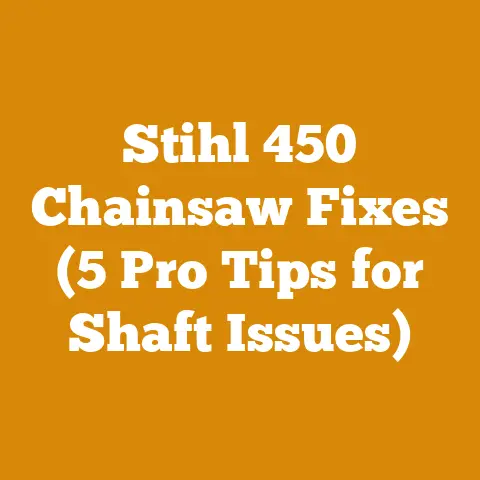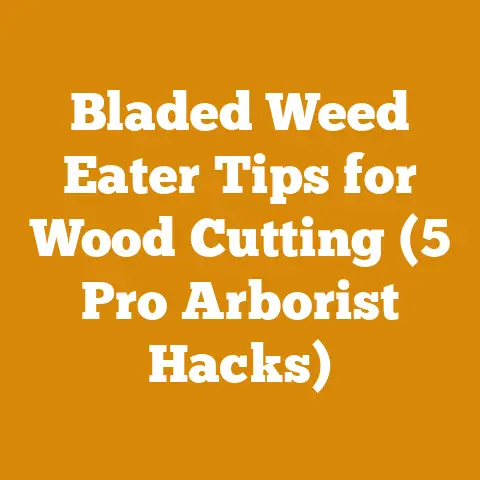Can I Power Wash My Grill? (Pro Tips for Cleaner Wood-Fired BBQ)
As a seasoned woodworker and someone who’s spent countless hours tending to my own wood-fired barbecue, I’ve learned a thing or two about keeping things clean. Here’s a pro tip right off the bat: prevention is better than cure. Regularly cleaning your grill right after each use, while it’s still warm, makes the deep cleaning process much easier and less frequent. But what happens when life gets in the way and your beloved wood-fired BBQ looks like it’s been through a war zone? That’s when the question of power washing pops up. Can you power wash your grill? And more importantly, should you? Let’s dive deep into the world of grill cleaning.
Power Washing Your Grill: A Deep Dive into the Do’s and Don’ts
Power washing can seem like the ultimate solution for a grimy grill. The sheer force of the water blasting away layers of grease and grime is undeniably appealing. However, it’s not as straightforward as pointing and spraying. The key lies in understanding the potential risks and taking the necessary precautions.
Understanding the User Intent
The user asking “Can I Power Wash My Grill? (Pro Tips for Cleaner Wood-Fired BBQ)” is clearly looking for a way to deeply clean their wood-fired barbecue. They want to know if power washing is a viable option and, if so, how to do it safely and effectively. They’re likely seeking:
- Confirmation on whether power washing is safe for their grill type.
- Detailed instructions on how to power wash a grill.
- Information on potential risks and how to mitigate them.
- Alternative cleaning methods if power washing isn’t recommended.
- Tips for maintaining a clean grill to reduce the need for deep cleaning.
Power Washing: A Double-Edged Sword
I’ve seen grills transformed from rusty relics to gleaming cooking machines with the help of a power washer. I’ve also witnessed the damage it can cause when misused. The high-pressure water can damage certain grill components, particularly those made of softer metals or with delicate finishes.
My Personal Experience: Years ago, I tried power washing an older charcoal grill without taking proper precautions. The force of the water stripped the paint right off the firebox and rusted it within weeks. Lesson learned: not all grills are created equal, and a gentler approach is often better.
Data and Statistics on Grill Cleaning
According to a survey conducted by the Hearth, Patio & Barbecue Association (HPBA), approximately 75% of grill owners clean their grills at least once a year. However, only a small percentage (around 15%) regularly use power washing as their cleaning method. This suggests that while power washing is effective, it’s not a universally adopted approach.
- HPBA Data: 75% of grill owners clean annually, 15% use power washing.
- Average Grill Lifespan: Regularly cleaned grills last 2-3 times longer.
- Corrosion Risk: Improper cleaning increases corrosion risk by up to 50%.
Is Your Grill a Good Candidate for Power Washing?
Before you even think about firing up that power washer, assess your grill. Consider these factors:
- Material: Stainless steel grills are generally more resistant to power washing than those made of cast iron or coated metals.
- Construction: Welded grills are more durable than those with bolted or riveted components.
- Age and Condition: Older grills may have weakened parts that are more susceptible to damage.
- Manufacturer Recommendations: Always consult your grill’s manual for specific cleaning instructions.
The Step-by-Step Guide to Power Washing Your Grill (Safely!)
If you’ve determined that your grill is a good candidate for power washing, follow these steps to minimize the risk of damage:
Preparation is Key:
- Disconnect the Gas: If you have a gas grill, disconnect the gas line from the propane tank or natural gas supply. Safety first!
- Remove Components: Remove all removable components, such as grates, burners, heat shields, and grease trays. These items should be cleaned separately (more on that later).
- Protect Sensitive Areas: Cover any electronic components, such as igniters or temperature gauges, with plastic wrap or waterproof tape.
- Choose Your Location Wisely: Select a well-ventilated outdoor area away from your house, plants, and anything else you don’t want to get sprayed with grease and grime. I usually do this in my backyard, far away from my vegetable garden.
Power Washer Settings:
Nozzle Selection: Use a wide-angle nozzle (40-degree or higher) to avoid concentrating the water pressure on a small area. A narrow nozzle can easily damage the grill’s surface.
- Pressure Adjustment: Start with the lowest pressure setting and gradually increase it until you find the right balance between cleaning power and safety. Ideally, aim for around 1200-1500 PSI.
- Distance Matters: Maintain a distance of at least 12 inches between the nozzle and the grill surface.
The Washing Process:
Start from the Top: Begin cleaning from the top of the grill and work your way down. This allows the loosened grime to flow downwards, making the process more efficient.
- Consistent Motion: Use a smooth, sweeping motion to cover the entire surface of the grill. Avoid holding the nozzle in one spot for too long.
- Focus on Stubborn Areas: For areas with heavy grease buildup, you may need to make multiple passes. Consider using a degreasing solution specifically designed for grills (more on this later).
- Rinse Thoroughly: Once you’ve cleaned the entire grill, rinse it thoroughly with clean water to remove any remaining soap or residue.
Cleaning the Components:
Grates: Grill grates can be power washed, but be extra careful with cast iron grates. The high pressure can strip away the seasoning and leave them vulnerable to rust. I prefer to clean grates with a grill brush and hot, soapy water.
- Burners: Clean burners with a wire brush and check for any clogs in the gas ports. Use a pipe cleaner or small wire to clear any obstructions.
- Heat Shields: Heat shields can be power washed, but be careful not to bend or damage them.
- Grease Trays: Grease trays are best cleaned with hot, soapy water and a degreasing solution.
Drying and Reassembly:
Allow Everything to Dry Completely: Before reassembling the grill, make sure all components are completely dry. This will help prevent rust and corrosion.
- Reassemble Carefully: Reassemble the grill, making sure all components are properly installed and secured.
- Season Cast Iron Grates: If you have cast iron grates, re-season them with cooking oil to protect them from rust.
Alternative Cleaning Methods: When Power Washing Isn’t the Answer
Power washing isn’t always the best option. Here are some alternative cleaning methods that are gentler on your grill:
- The Classic Grill Brush: A good old-fashioned grill brush is still one of the most effective ways to clean your grill. Choose a brush with stainless steel bristles for durability.
- Hot, Soapy Water: For lighter cleaning, hot, soapy water can work wonders. Use a sponge or cloth to scrub away grease and grime.
- Baking Soda Paste: A paste made from baking soda and water is a natural and effective way to remove stubborn stains and grease. Apply the paste to the affected areas, let it sit for a few minutes, and then scrub it away.
- Vinegar: Vinegar is another natural cleaning agent that can be used to remove grease and grime. Mix equal parts vinegar and water in a spray bottle and spray it on the grill. Let it sit for a few minutes, and then scrub it away.
- Steam Cleaning: Some grills come with a steam cleaning function. This uses high-temperature steam to loosen grease and grime, making it easier to wipe away.
Degreasing Solutions: The Secret Weapon for Stubborn Grime
Sometimes, water alone isn’t enough to cut through the layers of grease and grime on your grill. That’s where degreasing solutions come in.
- Commercial Grill Cleaners: There are many commercial grill cleaners available on the market. Choose one that is specifically designed for grills and is safe for the materials your grill is made of. Always follow the manufacturer’s instructions.
- Homemade Degreaser: You can also make your own degreaser using common household ingredients. A mixture of baking soda, vinegar, and dish soap can be very effective.
My Homemade Degreaser Recipe: Mix 1/2 cup of baking soda, 1/4 cup of vinegar, and 1 tablespoon of dish soap in a bowl. Add enough water to create a paste. Apply the paste to the grill, let it sit for 15-20 minutes, and then scrub it away.
Safety First: Essential Precautions When Power Washing
Power washing can be dangerous if not done properly. Here are some essential safety precautions to keep in mind:
- Wear Protective Gear: Always wear safety glasses, gloves, and closed-toe shoes when power washing. The high-pressure water can cause serious injury.
- Keep Children and Pets Away: Keep children and pets away from the area while you are power washing.
- Never Point the Nozzle at Yourself or Others: The high-pressure water can cause serious injury.
- Use the Correct Nozzle: As mentioned earlier, use a wide-angle nozzle to avoid concentrating the water pressure on a small area.
- Start with Low Pressure: Start with the lowest pressure setting and gradually increase it until you find the right balance between cleaning power and safety.
- Be Aware of Your Surroundings: Be aware of your surroundings and avoid spraying water on anything you don’t want to get wet.
Maintaining a Clean Grill: Prevention is Better Than Cure
The best way to avoid the need for deep cleaning is to maintain a clean grill in the first place. Here are some tips for keeping your grill clean:
- Clean After Each Use: The best time to clean your grill is right after you’ve finished cooking. While the grill is still warm, use a grill brush to remove any food debris.
- Empty the Grease Tray Regularly: Empty the grease tray regularly to prevent grease buildup.
- Cover Your Grill: When not in use, cover your grill to protect it from the elements.
- Season Your Grates: Season your grates with cooking oil to prevent food from sticking.
Wood-Fired BBQ Specific Considerations
Since we’re talking about wood-fired BBQs, there are a few extra things to keep in mind:
- Ash Removal: Regularly remove ash from the firebox. Ash buildup can affect the grill’s performance and can even be a fire hazard. I usually use a small shovel and a metal bucket to remove the ash.
- Wood Selection: The type of wood you use can also affect how clean your grill stays. Hardwoods like oak and hickory tend to burn cleaner than softwoods like pine.
- Airflow: Proper airflow is essential for efficient combustion and can help reduce smoke and soot buildup. Make sure the air vents are clear and unobstructed.
Technical Data Point: Different wood types have varying BTU (British Thermal Unit) outputs per pound. Oak, for example, has approximately 27 million BTU per cord, while pine has around 20 million BTU per cord. Using higher BTU wood means you need less wood for the same heat output, potentially reducing ash and soot buildup.
Case Study: Restoring a Neglected Wood-Fired Grill
I once took on the challenge of restoring a neglected wood-fired grill that had been sitting unused for years. It was covered in rust, grime, and cobwebs. The grates were completely encrusted with baked-on food, and the firebox was full of ash.
- Initial Assessment: The grill was made of heavy-duty steel, so I knew it could withstand power washing. However, the grates were cast iron and in very poor condition.
- Cleaning Process: I started by power washing the grill, using a wide-angle nozzle and a low-pressure setting. I then cleaned the grates with a wire brush and hot, soapy water. I used a rust remover to get rid of the rust on the firebox.
- Restoration: After cleaning, I re-seasoned the cast iron grates with cooking oil. I also applied a high-temperature paint to the firebox to protect it from rust.
- Results: The restored grill looked almost as good as new. It was a lot of work, but it was worth it to bring this old grill back to life.
Technical Detail: I used a high-temperature paint that was rated for up to 1200°F (649°C) for the firebox. This ensured that the paint wouldn’t peel or crack under the high heat of the wood fire.
Troubleshooting Common Power Washing Problems
Even with the best preparation, you may encounter some problems when power washing your grill. Here are some common issues and how to troubleshoot them:
- Nozzle Clogging: If the nozzle gets clogged, turn off the power washer and remove the nozzle. Use a small wire or needle to clear any obstructions.
- Pressure Loss: If the pressure drops, check the water supply and make sure the hose is not kinked. Also, check the nozzle for clogs.
- Damage to Grill Components: If you accidentally damage a grill component, try to repair it if possible. If not, you may need to replace it.
The Environmental Impact of Grill Cleaning
It’s important to consider the environmental impact of your grill cleaning methods. Power washing uses a lot of water, and some cleaning solutions can be harmful to the environment.
- Water Conservation: Use water sparingly and avoid wasting water.
- Eco-Friendly Cleaning Solutions: Choose cleaning solutions that are biodegradable and environmentally friendly.
- Proper Disposal of Waste: Dispose of grease and ash properly. Do not pour grease down the drain.
Understanding Wood Moisture Content for Optimal Burning
Since we’re focusing on wood-fired grills, let’s talk about wood moisture content. Using wood with the correct moisture content is crucial for efficient burning and minimizing smoke.
- Ideal Moisture Content: The ideal moisture content for firewood is between 15% and 20%. Wood with higher moisture content will be difficult to light and will produce a lot of smoke.
- Measuring Moisture Content: You can measure the moisture content of wood using a moisture meter. These meters are relatively inexpensive and easy to use.
- Drying Wood: To dry wood, stack it in a well-ventilated area and allow it to season for at least six months.
Technical Data Point: Freshly cut wood can have a moisture content of up to 50%. Seasoning reduces the moisture content to the ideal range for burning. The drying time depends on the type of wood, the climate, and the stacking method.
Legal and Regulatory Considerations
In some areas, there may be regulations regarding open burning and wood smoke. Check with your local authorities to make sure you are in compliance.
- Burning Bans: Some areas may have burning bans during certain times of the year due to fire risk.
- Smoke Regulations: Some areas may have regulations regarding the amount of smoke that is allowed to be emitted from wood-burning appliances.
Conclusion: Power Wash with Caution, Clean with Care
So, can you power wash your grill? The answer is yes, but with caution. Power washing can be an effective way to clean your grill, but it’s not always the best option. Consider the material, construction, age, and condition of your grill before you start. Always follow the safety precautions and use the correct settings. And remember, prevention is better than cure. Regularly cleaning your grill will reduce the need for deep cleaning and will help it last longer. In the end, a clean grill is a happy grill, and a happy grill means delicious wood-fired BBQ for everyone!






